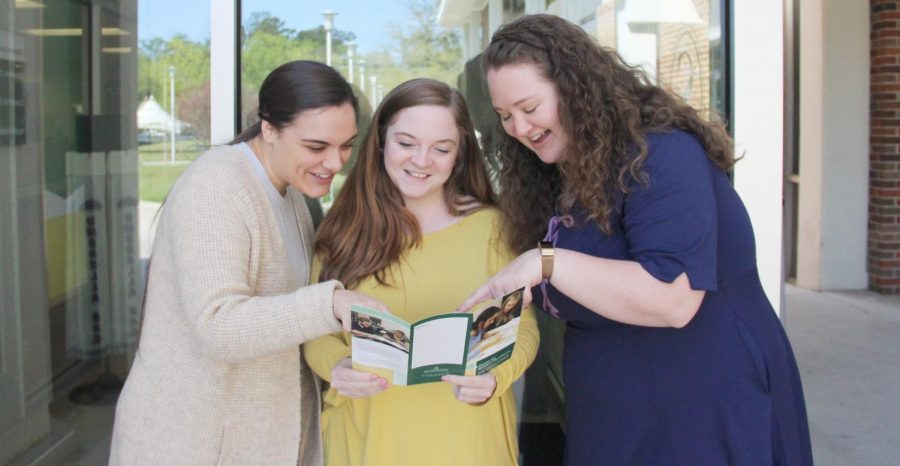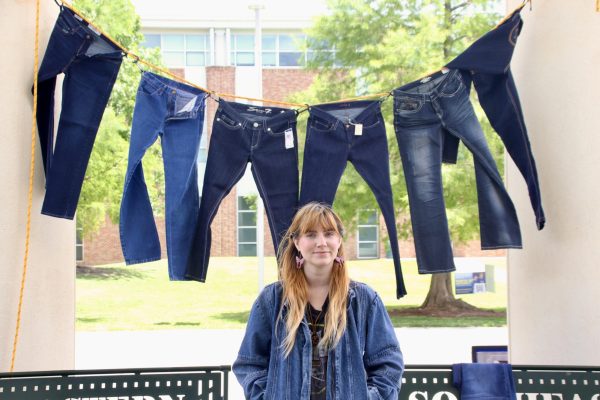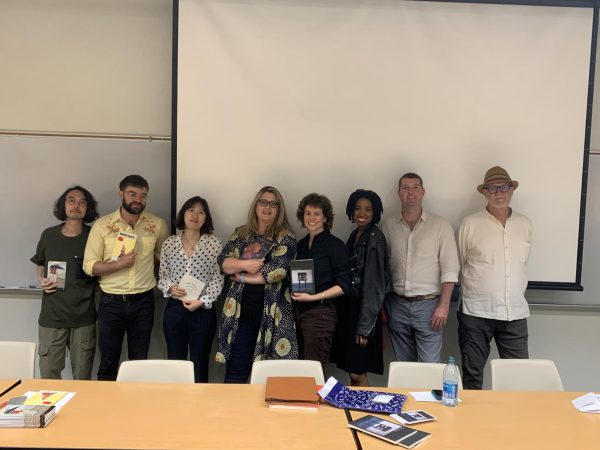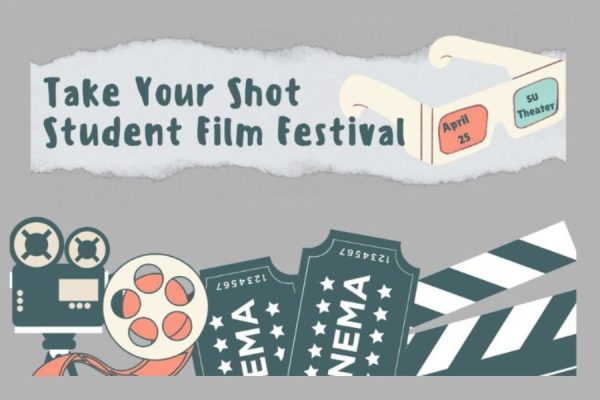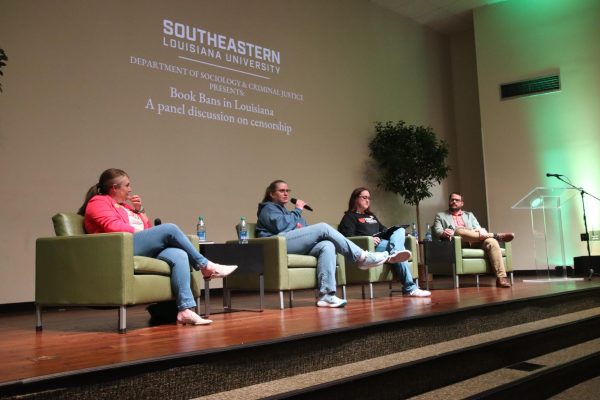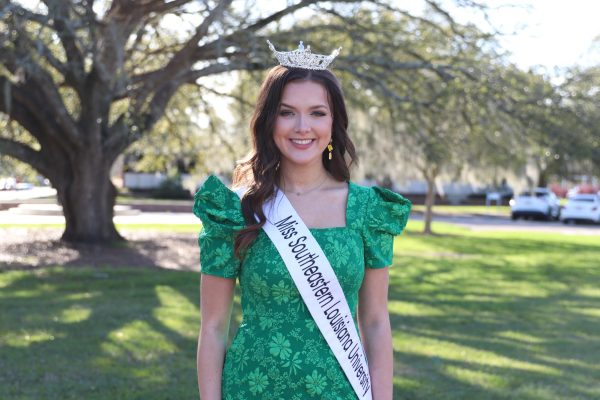Majors: A big decision with an even bigger impact
Erica Welter/The Lion’s Roar
Left, Hannah Nemar, a senior communication sciences and disorders major, middle, Kayla Scurich, a graduate student, and right, Kassie deArmas, a graduate student, discuss the amenities offered by Center for Student Excellence.
Choosing a major is one of the most important decisions a college student has to make. The choice not only determines courses of study but influences career paths and affects lifestyles.
While there are resources such as the Center for Student Excellence to help students pick a major, the decision ultimately rests upon the student. Southeastern 101 instructors serve as a student’s academic advisor for their first two semesters. Students can meet with their advisors to discuss their academic focus and develop strategies for overcoming problems.
Some students decide their majors before they enroll at the university such as Alexander Craig, a sophomore history major, who decided his major in high school.
“I decided that because I was good at history,” said Craig. “I have never thought about changing my major.”
Other students choose to remain undecided to explore all of their options. The university allows freshmen to remain undecided for two semesters, or until they reach 30 hours.
Betty Huffman, a senior English major, explained her decision to stay undecided when she enrolled.
“Even as an eager 18-year-old, it always seemed like a silly notion to me that I needed to have my life plans figured out immediately out of high school,” shared Huffman. “I entered college with an open mind and expectations that I would slowly discover what I enjoyed studying.”
Huffman encouraged undecided students to explore their options by expanding the scope of their curriculum.
“Don’t be afraid to use elective courses to figure out what you’re interested in,” advised Huffman. “If I wouldn’t have taken a creative writing course as an undecided student, I wouldn’t be graduating with a degree I am so inspired by.”
For students who have already declared a major, it may come as a surprise if they discover their chosen major is not a good fit.
Devin Poissenot, a junior English major, described why he changed his major from civil engineering to English.
“I realized I wasn’t suited for the material when I failed my introductory engineering course,” stated Poissenot. “After engineering, I switched to accounting and finally wound up in English when I finally realized that I should study what makes me happy, not what will make me most qualified for a job.”
A student’s natural abilities can influence their choice of a major. The CSE provides a range of activities and services intended to help students explore their interests, personality, skills and values. The CSE website offers a decision-making activity, the Myers Briggs personality assessment and a skills checklist activity to help students make an informed decision.
Huffman credited two of her professors for helping her turn her natural talent into a potential career.
“I have always loved to write but was afraid that choosing creative writing as my major would take the magic out of it,” expressed Huffman. “English professors Dr. Richard Louth and Dr. Jack Bedell have been pivotal in my understanding and love for the craft. I declared creative writing in the middle of my sophomore year and haven’t looked back since.”
Poissenot believes people take advice from others too often when choosing or changing their major.
“Even if you change it several times, it’s OK to listen to your ‘inner voice’ so to speak,” explained Poissenot. “Analyzing what you like and don’t like, and what you’re good at and what you’re not good at, is where you should focus most of your attention. Asking someone close to you to describe objectively your pros and cons will get you much farther than asking a counselor or professional what you should or shouldn’t go into.”
Your donation will support The Lion's Roar student journalists at Southeastern Louisiana University.
In addition, your contribution will allow us to cover our annual website hosting costs.
No gift is too small.


